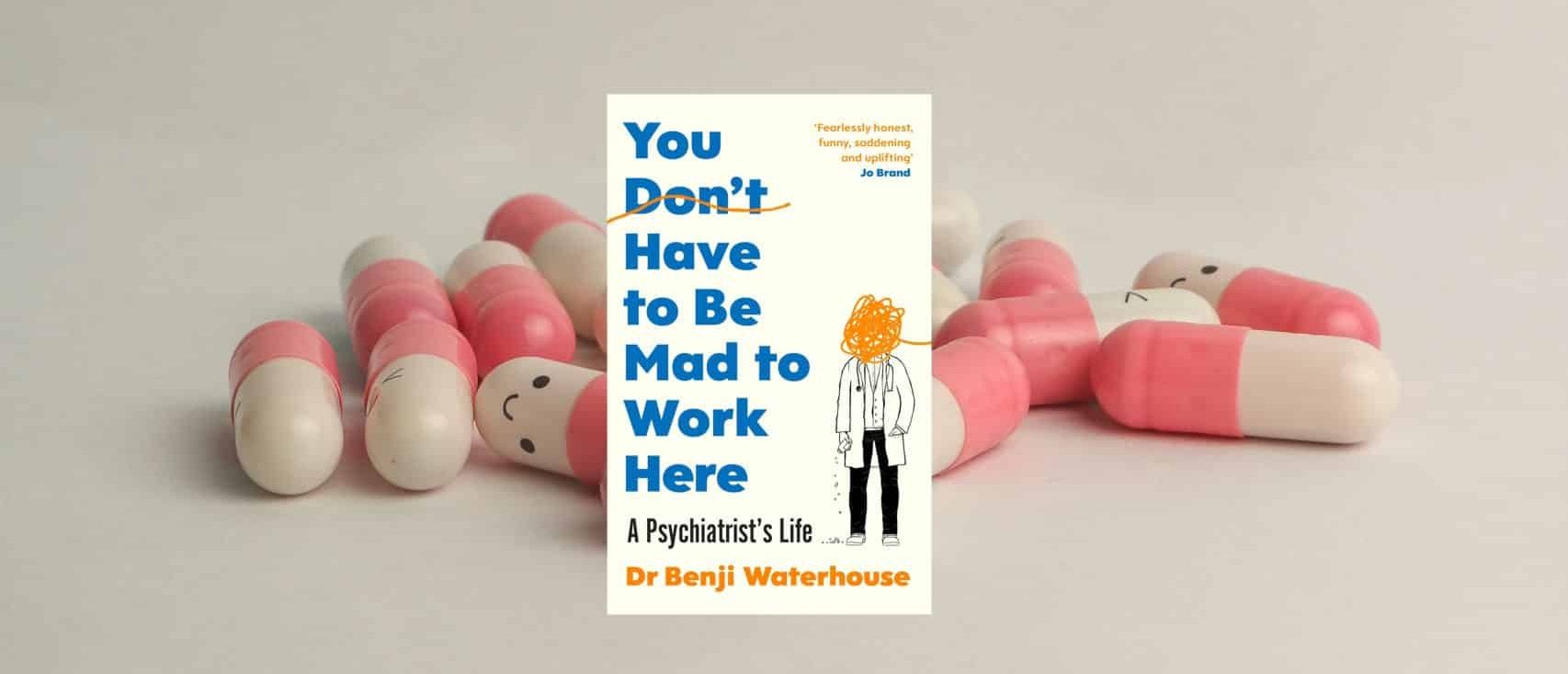 Ellen Welch is a GP in Carlisle, Vice Chair of North Cumbria LMC and the Doctors’ Association UK. She is on X: @wanderingwelch
Ellen Welch is a GP in Carlisle, Vice Chair of North Cumbria LMC and the Doctors’ Association UK. She is on X: @wanderingwelch
Released during Mental Health Awareness Week 2024, You Don’t Have to Be Mad to Work Here by psychiatrist Dr Benji Waterhouse provides a fly-on-the-padded-wall account of life as an NHS psychiatrist.
Waterhouse describes the bedraggled NHS we recognise all too well in this memoir, using his background as a stand-up comic to inject some self-deprecating humour – but never at the expense of his patients. He takes us through his own personal journey transitioning from a wide eyed psychiatry trainee, determined to make a difference, to a jaded, burnout veteran, questioning his life choices.
Waterhouse describes the bedraggled NHS we recognise all too well in this memoir, using his background as a stand-up comic to inject some self-deprecating humour…
His career path in psychiatry is repeatedly dismissed by medical colleagues as he embarks on his journey. It’s “A waste of a perfectly good doctor,” announces one medical consultant; while a cardiologist tells him he’s simply a “Social worker with a stethoscope”. Even on his holidays away from the wards, his specialty is shunned by a doctor he meets on an aeroplane, while responding to the “Is there a doctor on board?” tannoy. With CPR ongoing in the aisle, Waterhouse reveals he is a psychiatrist, and is greeted with a raised eyebrow and “Well, I’m an emergency physician, yeah, so maybe if I manage to restart his heart then you can ask him about his childhood…’
Admittedly, reflects Waterhouse, in this particular case, re-establishing a pulse was a solid starting point, but the incident reflected a widely held sentiment that mental health is less important than physical health.
This is the theme that is repeatedly explored – the (sometimes dark) humour throughout this book allows the alien world of inpatient psychiatry to be accessible to lay readers. As Waterhouse says “Those with chronic, severe labels deemed messier, uglier or outright feared – such as schizophrenia or bipolar, personality disorders or substance misuse disorders receive less attention [than the mental health problems at the more palatable end of the spectrum]. The ones for whom some cold-water swimming and mindful colouring-in probably won’t cut it.”
As GPs we are uncomfortably familiar with the pressures faced by NHS mental health services. The waiting lists that stretch to years. Like Waterhouse, we recognise the sad status quo that places a suicidal homeless man 83rd on the waiting list for cognitive behavioural therapy, and our impotence to change this. We know the number of inpatient psychiatric beds fell from 67,000 in 1988 to 18,000 in 2019, meaning that the most desperately unwell patients are sent hundreds of miles out of area, away from their support networks, for treatment.
As GPs we are uncomfortably familiar with the pressures faced by NHS mental health services.
These pressures are laid bare, as we follow Waterhouse through his rotations and on calls, his initial enthusiasim and idealogy, being slowly worn down by the workload, the seeming apathy of his seniors and the tick-box bureaucracy of the bed managers.
He sarcastically describes one such nightshift, when he is part of the reduced skeleton crew providing cover for over 1 million troubled minds in the capital, “Because if there’s one thing the mentally ill are famous for, it’s long contented sleeps.”
The 4am phone call from accident and emergency asks Waterhouse to assess a suicidal patient who, “Jumped off suicide bridge…”
“Which side of suicide bridge did they jump off?” asks a harassed Waterhouse, eyeing the mountains of paperwork he still needs to plough through, “The north side facing the church or the south side facing the shopping centre? It’s just that bridge divides the north and south crisis teams. We’re the north…”
‘This isn’t callous disregard for human life,” he tells himself, “it’s just the way the NHS is organised. When I’m struggling to catch my own breath, why take on cases that might come under another teams patch? Just as on a crashing plane, always apply your own oxygen mask first before helping others.”
As we are introduced to the poignant cast of characters Waterhouse treats during his training, we see his frustrations with the system grow, leading him to face a battle with his own mental health problems, and seek therapy, delving into the challenges of his own upbringing.
When it comes to medical memoirs, how do writers preserve the identify of their patients when sharing so candidly? Waterhouse answers this in his notes, stating that names, ages, places and identifiable details have been changed to preserve the confidentiality of patients, colleagues and some family members. However when it comes to his own personal story, his close family are readily identifiable, and he thanks them in the acknowledgements, for letting him tell their story -or, he says, his version of it anyway.
Touching and honest, I’m a great believer that sharing stories is the key to making changes to the vast dysfunctional system that is the NHS, which we know is currently doing a massive disservice to so many people struggling to seek help with their mental health problems. This book shows the human side of psychiatry, and shows with compassion and wit the toll the job can take on the staff trying their best to prop it up.
Featured book: Benji Waterhouse,






